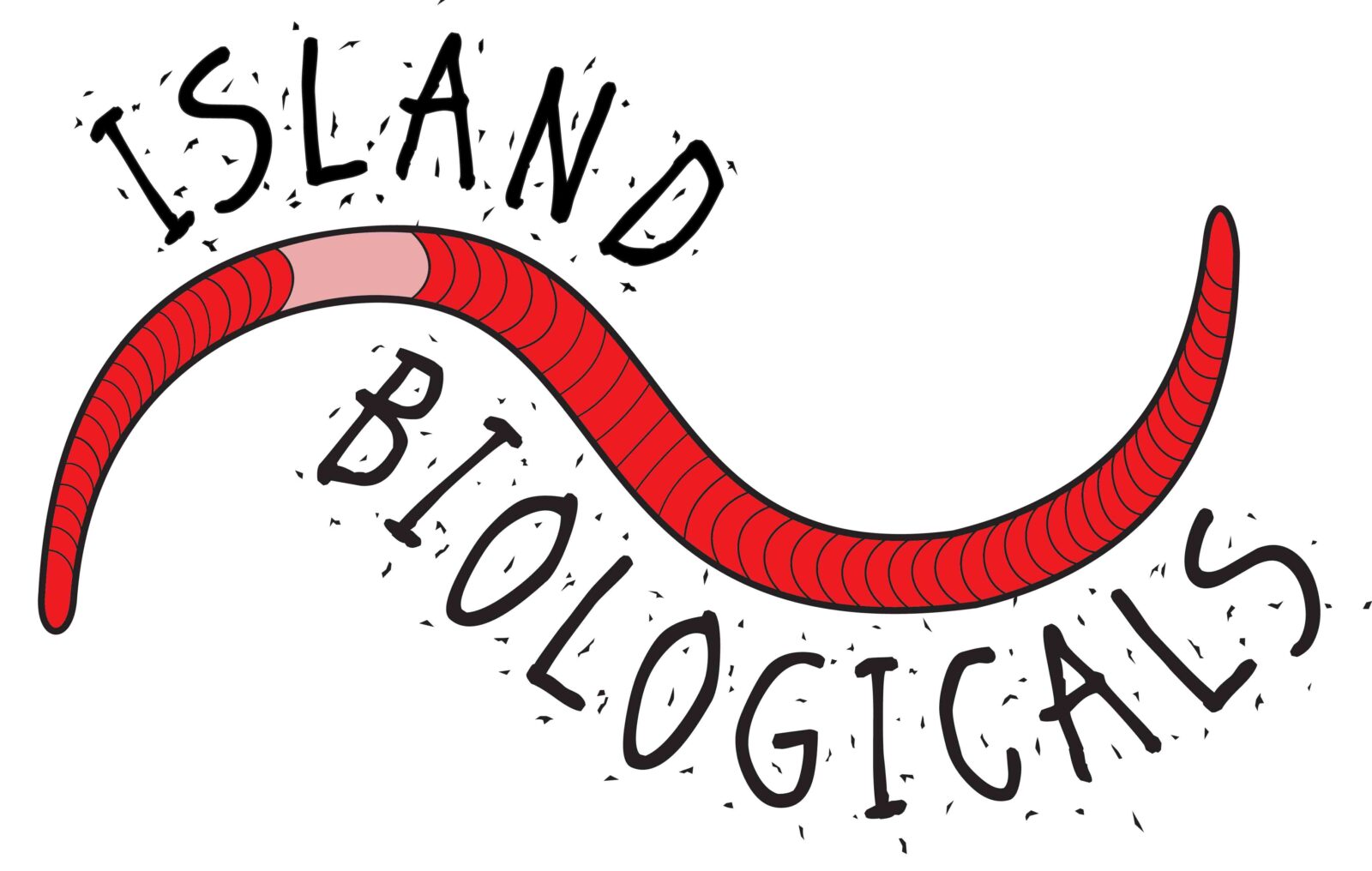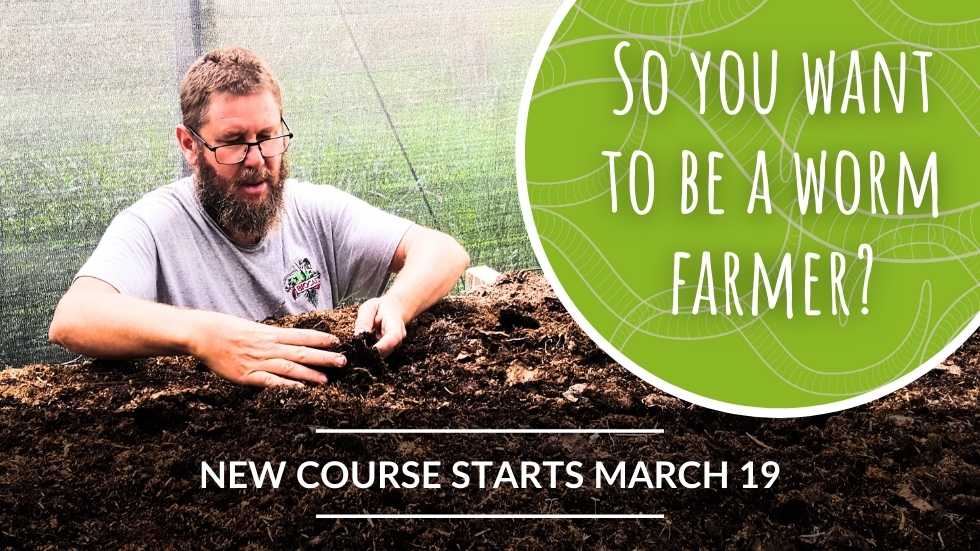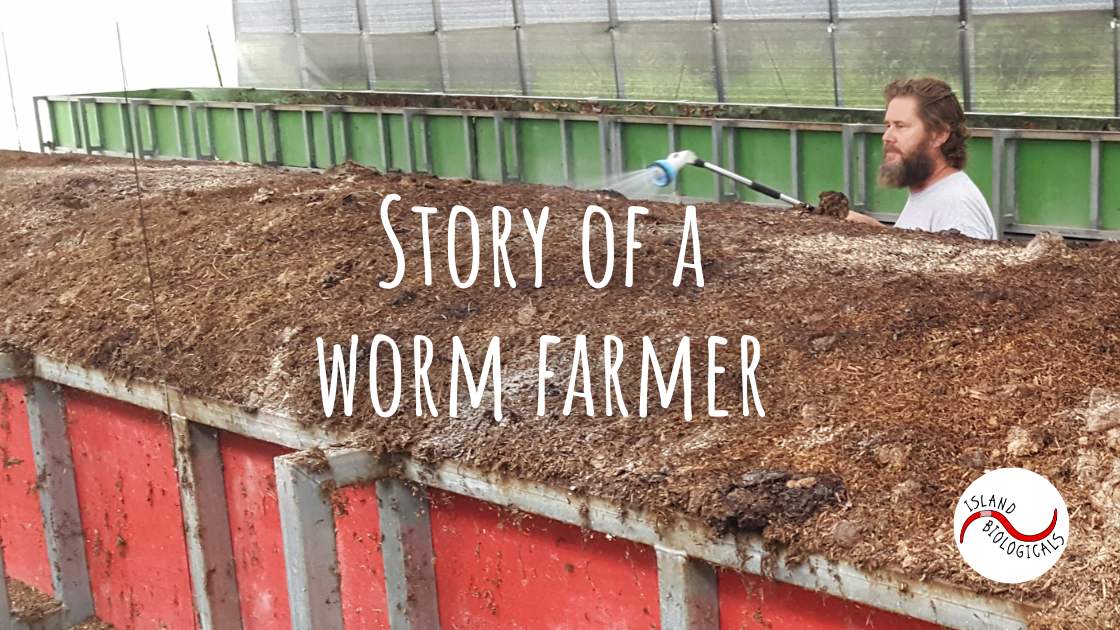
At the moment (early 2024), we are celebrating 10 years of commercial worm farming! Lee often gets asked how he got started. Here’s our story:
In the beginning
Waaaaay back in the day, Lee was a carpenter. He apprenticed with his dad Col, just as Col had before him. Times had changed since then though, and when Col retired and Lee worked for others in the industry, he found that he really didn’t like the quantity over quality ethic he found himself in. So he burnt his nail bag and looked for something else to do.
He wanted to do something with plants. Food forests, natural ecosystems – something. Horticulture was on offer at the local TAFE, so that is where he started.
Now with a home on Oxley Island, in the floodplain delta of the Manning River, Lee thought maybe he could put that horticulture training and the permaculture design certificate he did when he was 19 to use and start a market garden. The trouble was, the soil was terrible. 32 percent aluminium! pH 4.2! Let’s just say the home veggie patch wasn’t thriving.
One day, there was a field trip to see Brian Parry of Parrys Wildflower Nursery at Bunyah. Brian also happens to be a worm farmer. Lee learnt of compost teas, soil structure and vermi-liquids, and was introduced to the concept of a biostimulant as something that wasn’t a fertiliser but could still help plants to grow. How could such a thing be!? It took a while for him to wrap his head around this one.
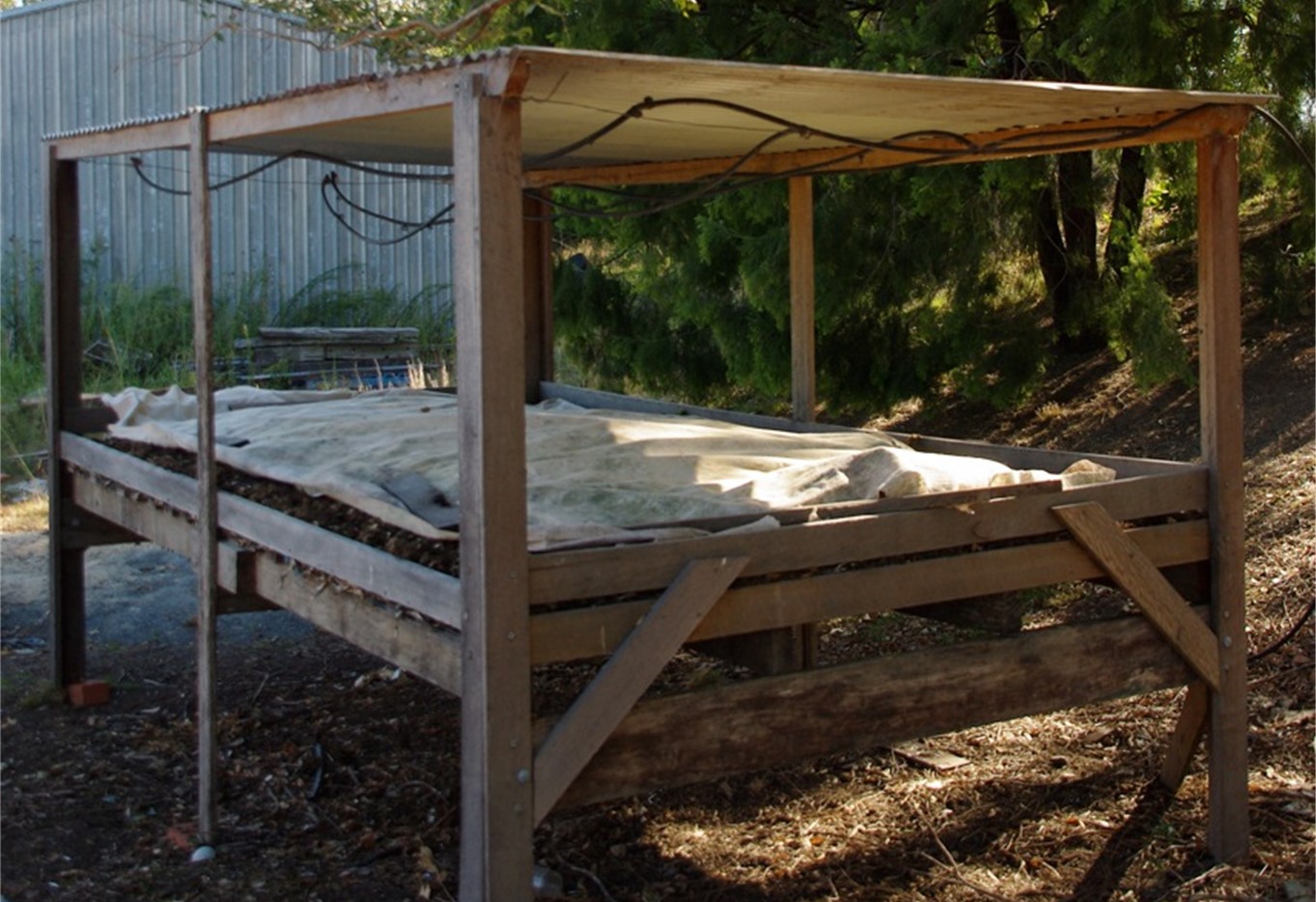
Lee got his first 10 kg of worms from Brian and used his carpentering to construct a lovely raised bed for them, pictured here.
These are the ancestors of most of the worms we have!
The quest to improve the soil led him to a Landcare day with Jeremey Bradley and Cath Eggert near Wauchope. Although a beef farmer, Jeremy calls himself a ‘microherder’, because what he’s most interested in is tending to the life in the soil – the theory being that this is the hidden workforce creating healthy pastures which flows on to thriving cattle. He is a master compost tea brewer, and generously shared his knowledge of the microbes. But Lee was still completely confused about microbes and what compost tea does.
Becoming a worm farmer
To deepen his microbe knowledge and microsopy skills, Lee went to the Soil FoodWeb Institute near Lismore. Chris Ellery from SFI told him about vermicast and planted the idea of the big cast harvest beds and a liquid extract. Lee was taken by the convenience of such a product for naturally boosting a plant’s health. Chris taught Lee just enough to get going, without showing him how to do any of it. This was perfect, because Lee got to learn it by doing it, and refine his own process.
Lee had found his thing. On the first day of this course, Lee became a worm farmer. The market gardening idea broke down like a good compost.
The game was on, and Lee dove into his new venture. He invented and constructed 30 stacking beds for worm breeding. He and Col built a large greenhouse on his property, and installed two 19.2 m cast harvest beds. It was seeded with worms from the original bed. Lee sought inputs and got his compost bays going, then slowly built up the material in the worm beds.
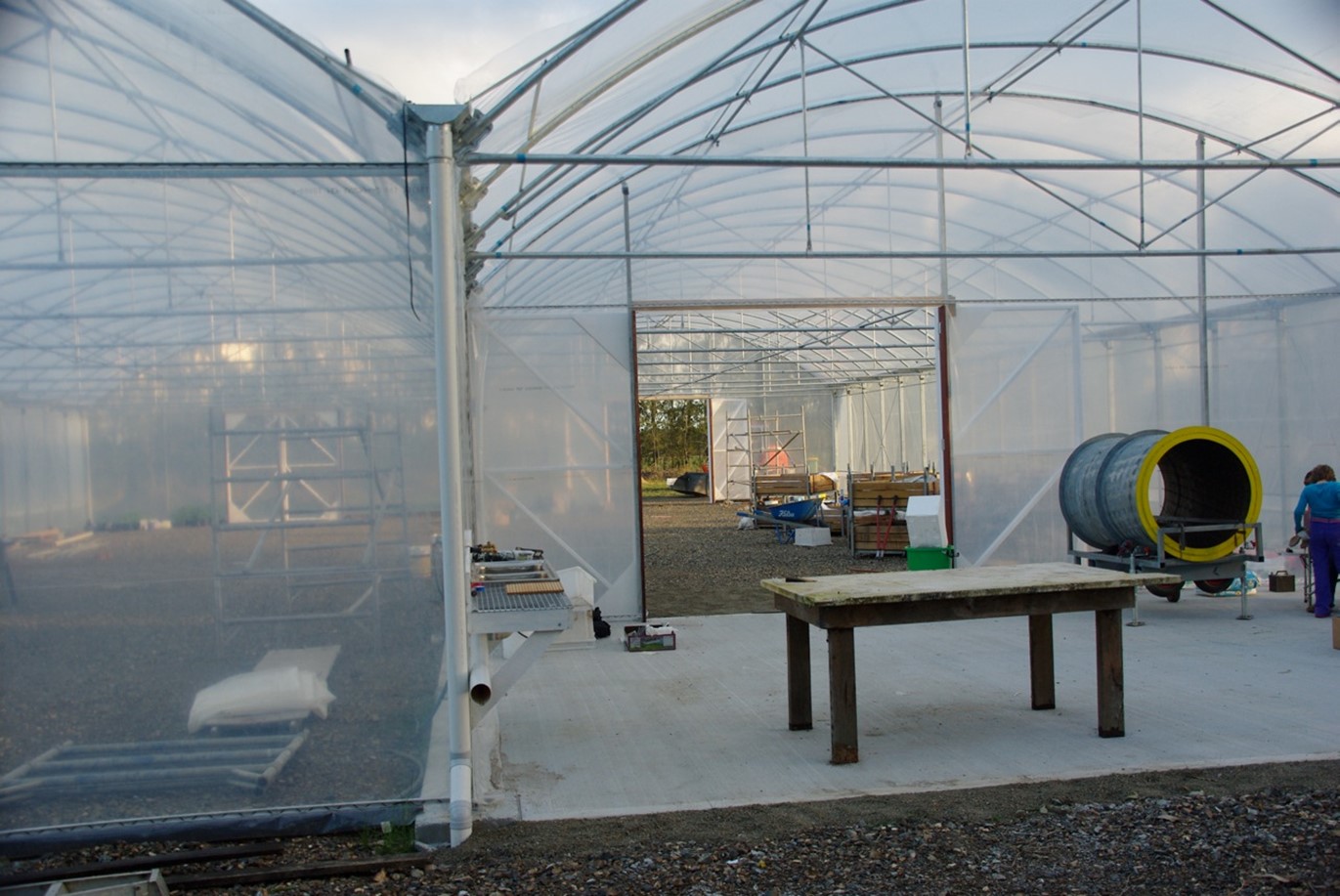
The recently completed greenhouse.
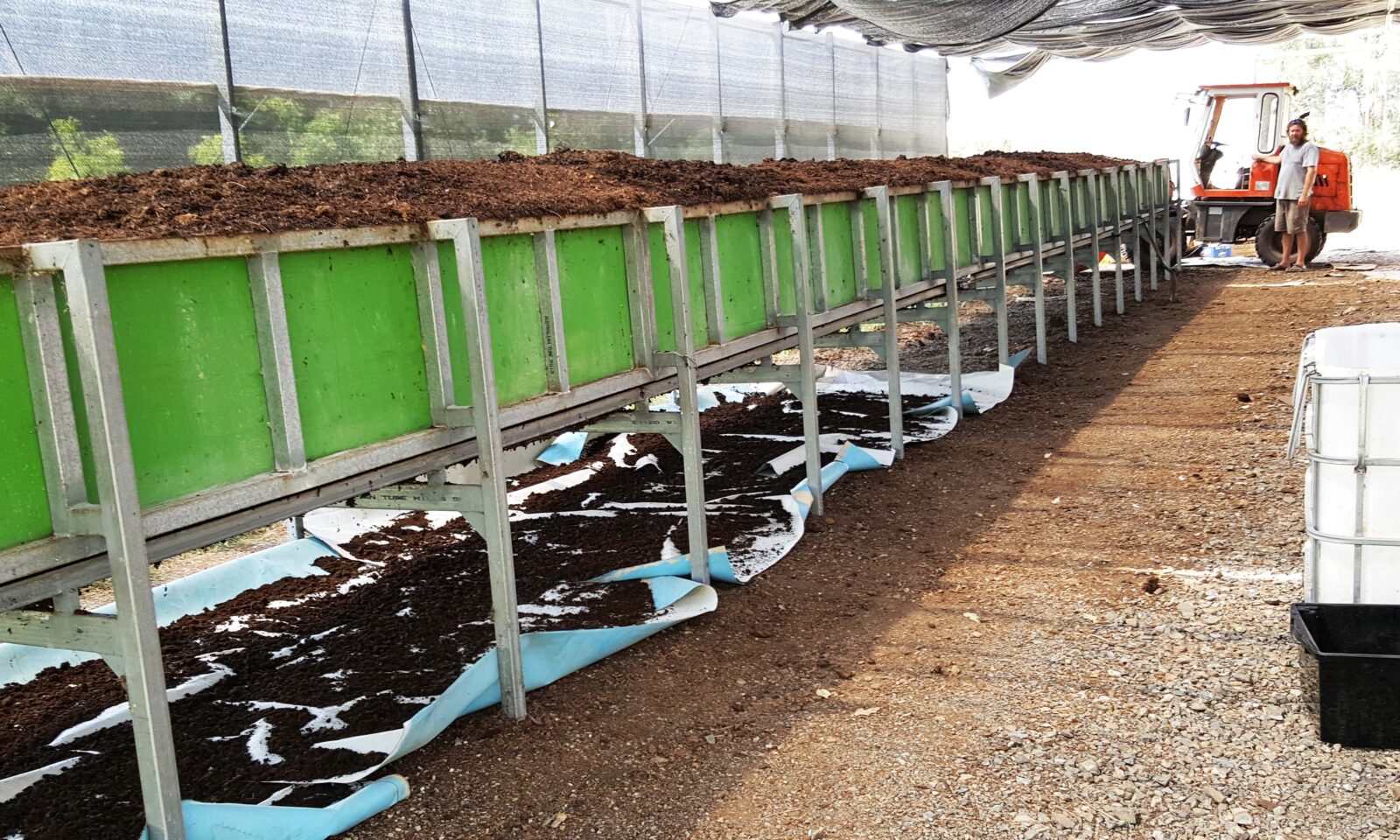
One of the worm beds in operation, 2019.
Islands in the Stream
Lee named his new business ‘Islands in the Stream’, because Oxley Island is an island of the Manning River delta, and he liked the song. It made its commercial debut at the Wingham Farmers’ Market. It was 2014, and Lee initially sold compost worms and home worm farms, then later Biocast and bags of worm castings. When starting out Lee didn’t even have bottles or a name for his vermi-juice, but this is where what was to become Biocast found its first client – flower growers Gabe and Fiona from Pinnacle Farm. The Biocast did an astonishing job of helping Gabe and Fiona’s gerberas and sim carnations overcome disease. It also had unexpected benefits – like creating bigger gerbera flowers with longer stems that could actually stay upright without wire. (From skeptics to converts, you can read their full story here.) Woohoo! This stuff actually works!
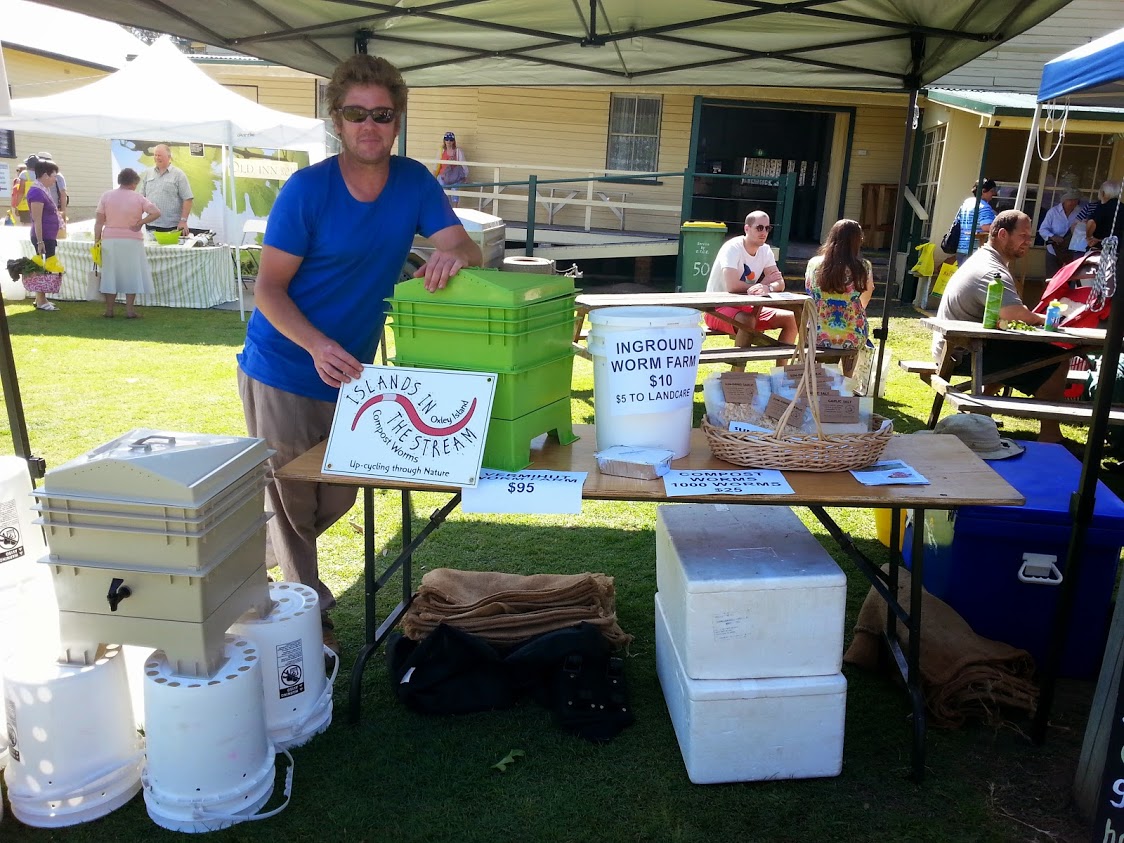
Lee selling worms and worm farms at one of his first Wingham Farmers’ Markets in 2014.
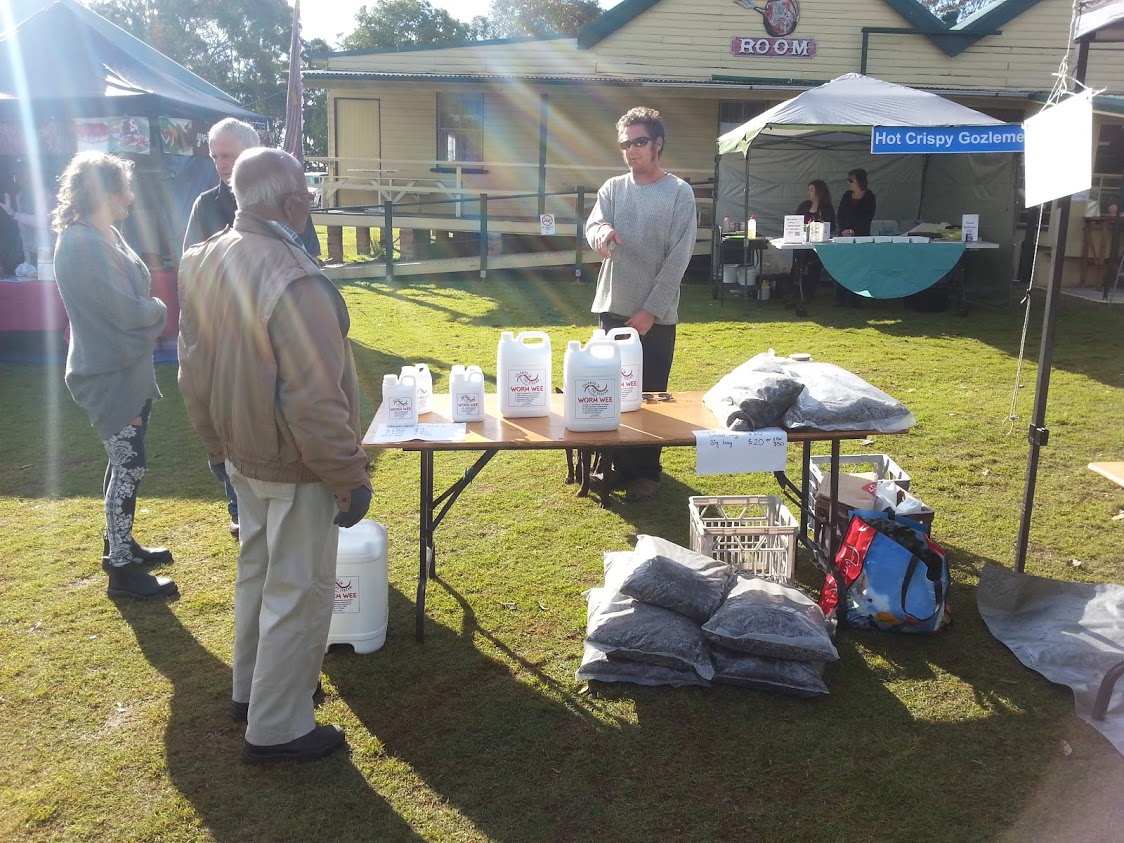
For a while the liquid extract of his cast was called ‘Worm Wee’, even though that is a terrible name and is technically incorrect. August 2015.
This is where I (Kirsty) enter the scene, as I was volunteering on the markets committee at the time; though it was a couple of years before we were more than just markets acquaintances. It was 2016 and I thought his stall could do with some hotting up (see photo above with the bottles), so he invited me around for dinner… and that’s how I ended up writing these blogs and the newsletters. And having two kids.
The great planarian outbreak
The summer before we started going out was warm and wet. Lee was distracted by becoming recently single, when kaboom! All the worms in one of his big beds were dying. There was an interloper in the bed, a flatworm, preying on the compost worms. They latch on to the worms, and suck them dry. Planarians, or flatworms, are truly amazing creatures. They are a similar size to a medium compost worm, but if you were to cut one into 370 pieces you would have 370 planarians. They are invincible! Except if you spray them with pool salt. That first summer though Lee attacked them with a flame thrower, which felt good, but was ineffective against the scale of the outbreak. He ended up completely emptying that bed and starting again.
Planarians love the warm, humid summers we experience on Oxley Island, and every year since we have had them show up to some degree. Lee no longer completely empties the bed if he can help it, but it’s a challenge we still haven’t quite overcome, and is why we no longer sell compost worms or worm castings.
The evolution of Biocast
The name ‘Worm Wee’ only lasted for one round of bottle stickers. From then on it was called Biocast+, because it is a biostimulant made from worm cast; and the plus because Lee had also developed ‘Part B’. This is a protein and carbohydrate food source for the microbes, so that they can awaken from the dormancy they are in in the bottle when you are ready for application. We culled the plus a couple of years ago when we went through the trademark process. Our lawyer pointed out that having a red-coloured cross shape on our label could be problematic?
The business also evolved. We found that some of our best customers were fellow stall holders at the markets, and Lee decided to pursue avenues to work more with primary producers. Our next big leap came in 2018. Around the time our daughter Coralie was born we said goodbye to the markets, switching to direct-to-producer sales. We also had our first ever shuttle order thanks to Jason Simmons of Armidale. Jason is a soil minerals expert, and we still get his advice and refer people to him for all things mineral. However, Jason knew that on his property his minerals were balanced perfectly and what the soil needed was not more nutrients, but nutrient CYCLING. He need the biological component, the part that turns dirt into soil, and he decided to try Biocast. Happily, Jason’s pastures loved Biocast, and to this day if you are in the Armidale region and need some drums you can pick them up from Jason. You can see Jason’s story here.
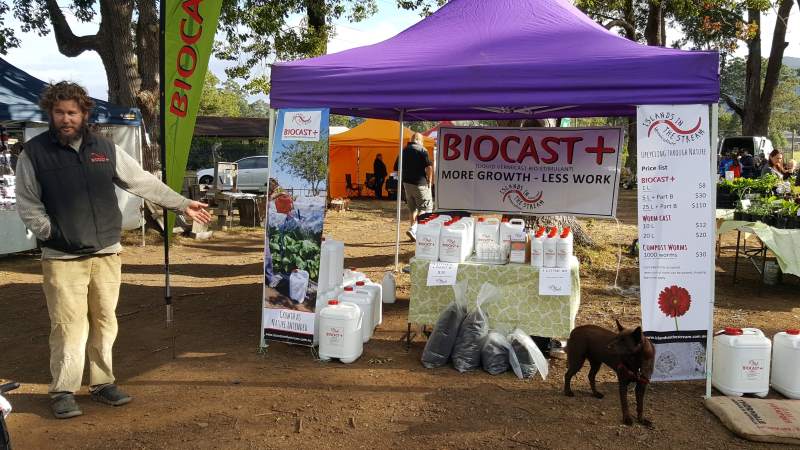
Our farmer’s markets stall matures, 2017, with trusty sidekick Mango
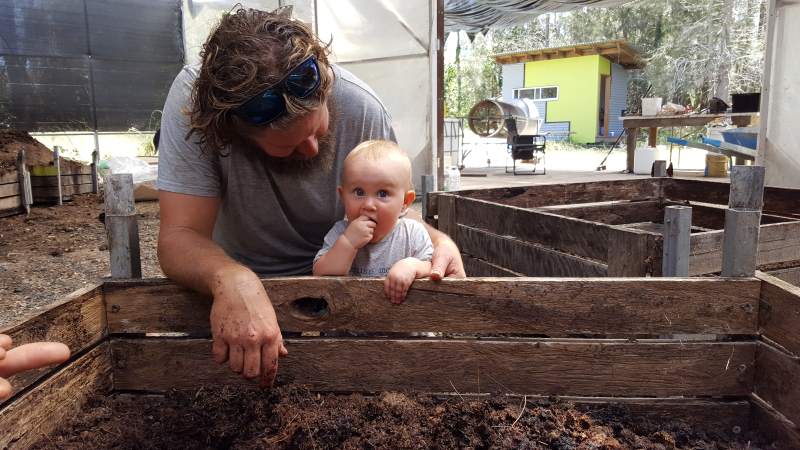
Teaching Coralie the ropes, 2019. The freshly built microscopy room is in the background.
10 years a worm farmer
The years between then and now have been filled with adventures, and life’s ups and downs. Fire, flood, pestilence, disease. Sadly we lost Col, and shortly afterwards our son Ray was born. Word of Biocast has spread, and so has our interest in the agricultural and horticultural sector.
Somewhere along the way ‘Islands in the Stream’ became not right for us, and the business became ‘Island Biologicals’ in 2019.
Lee continues to work primarily with primary producers, and the thing about a product like Biocast is that our customers are always wonderful people who want to do farming better and try new things! Meeting these innovators and helping people along their path has become Lee’s favourite part of worm farming. He prides himself that if you have a question you can ring up the bloke who makes the product and chat with him about it.
Lee is still driven to learn as much as he can about worms, vermiculture, plants, microbes and soil. He often stays up late reading the latest journal articles, has done training with Nicole Masters and Brian Wehlburg, and been mentored by Chris Ellery, Gerry Gillespie, Christine Jones, and Rachelle Armstrong. He’s come to the conclusion that the more you learn the less you know – especially when it comes to microbes! He’s run many a Landcare and permaculture workshop, has been contracted for on-farm composting solutions, and now offers vermiculture mentoring services.
He still calls himself a carpenter, though mostly for a joke.
And in the next 10 years… let’s see where this ride takes us!
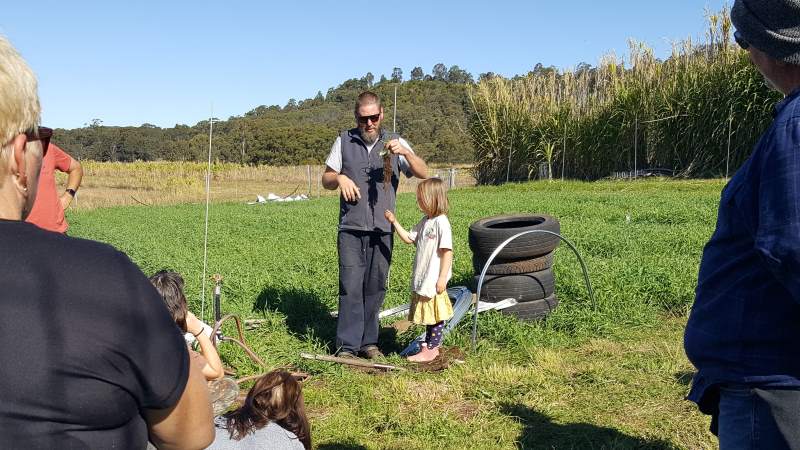
Lee teaching soil health and microbes to a Limestone Permaculture PDC class, 2023.
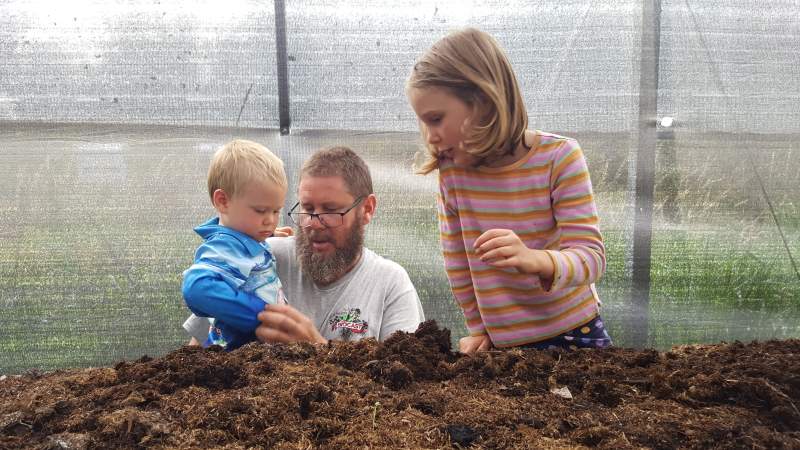
Lee, Ray and Coralie checking one of the big beds, 2023.
